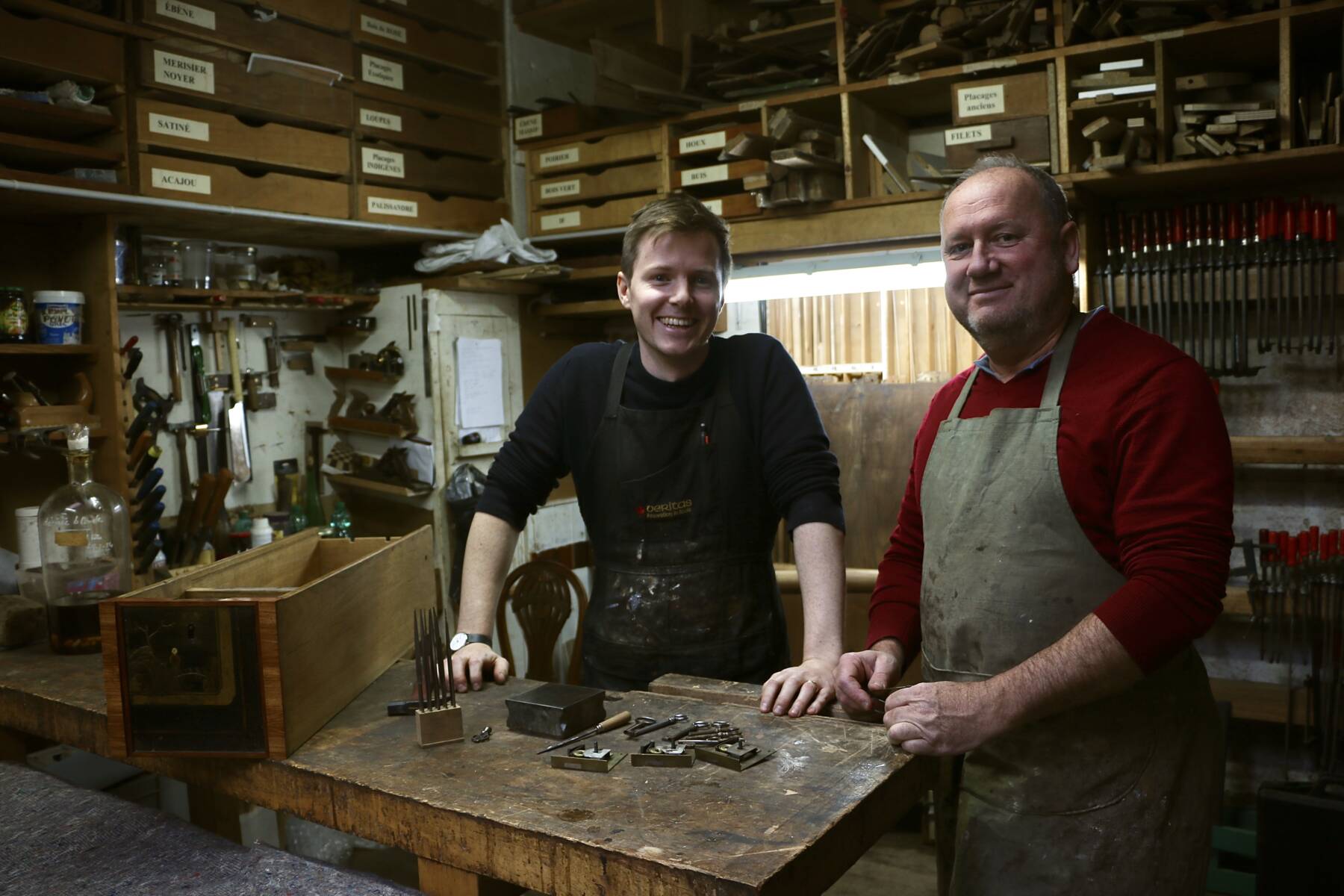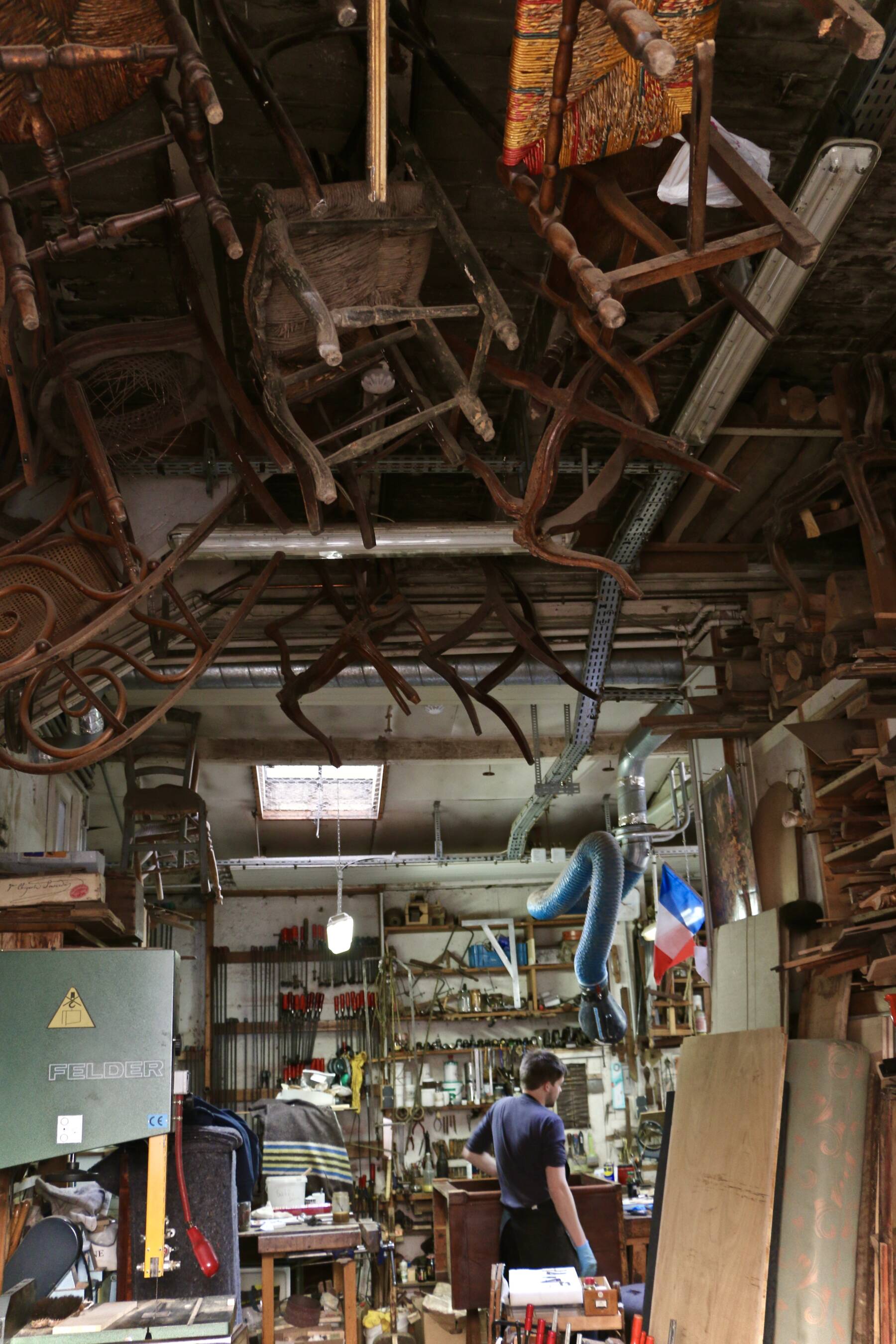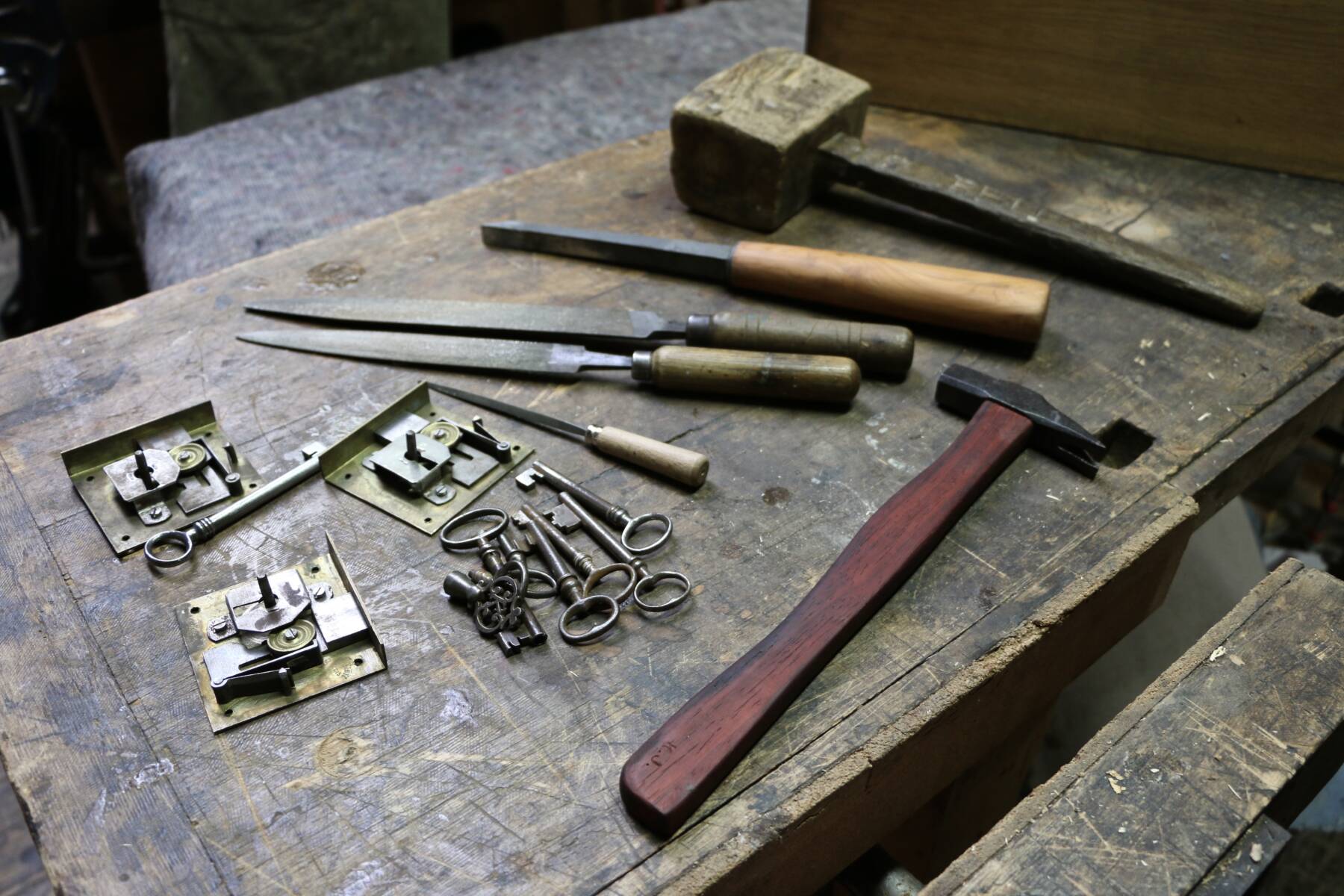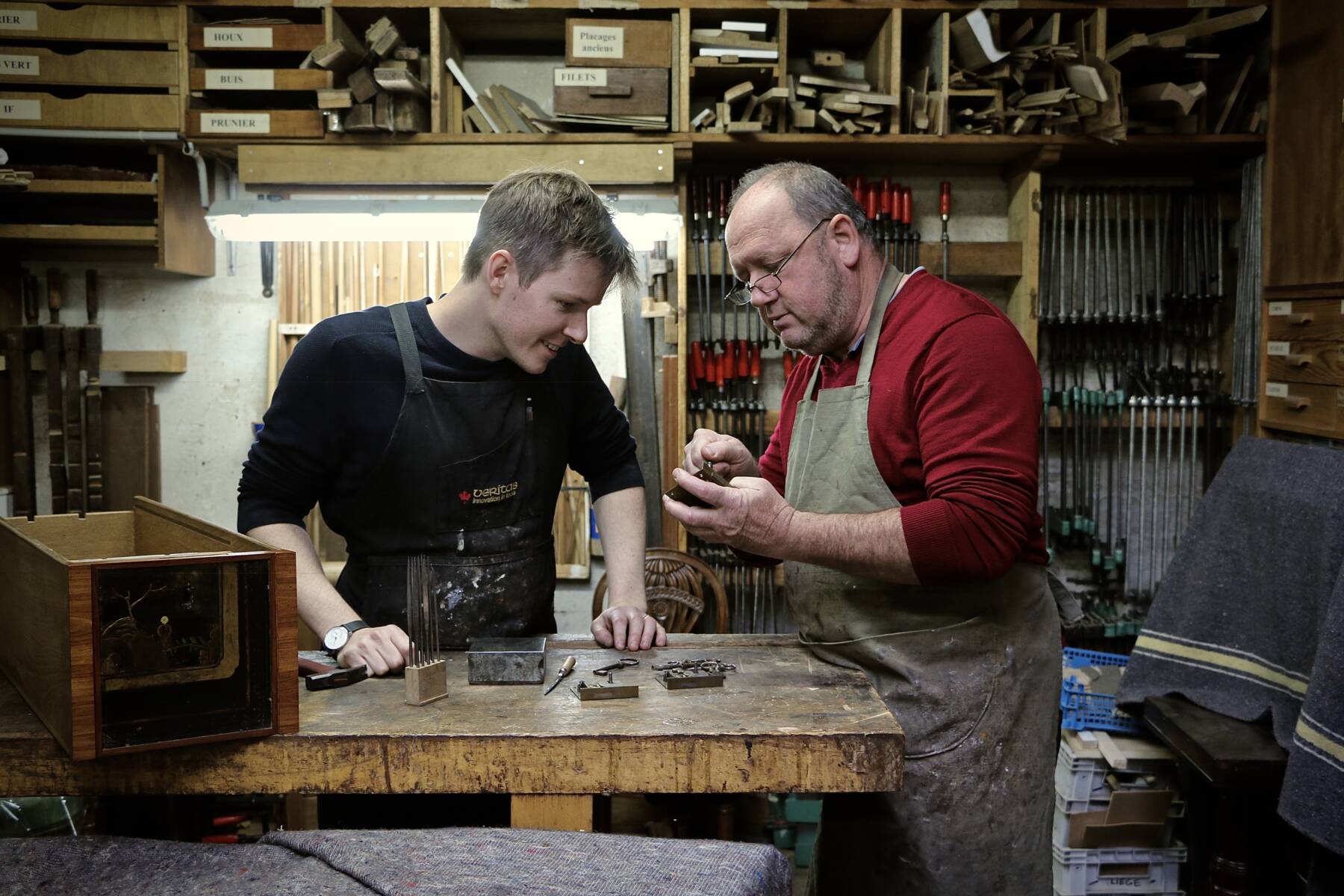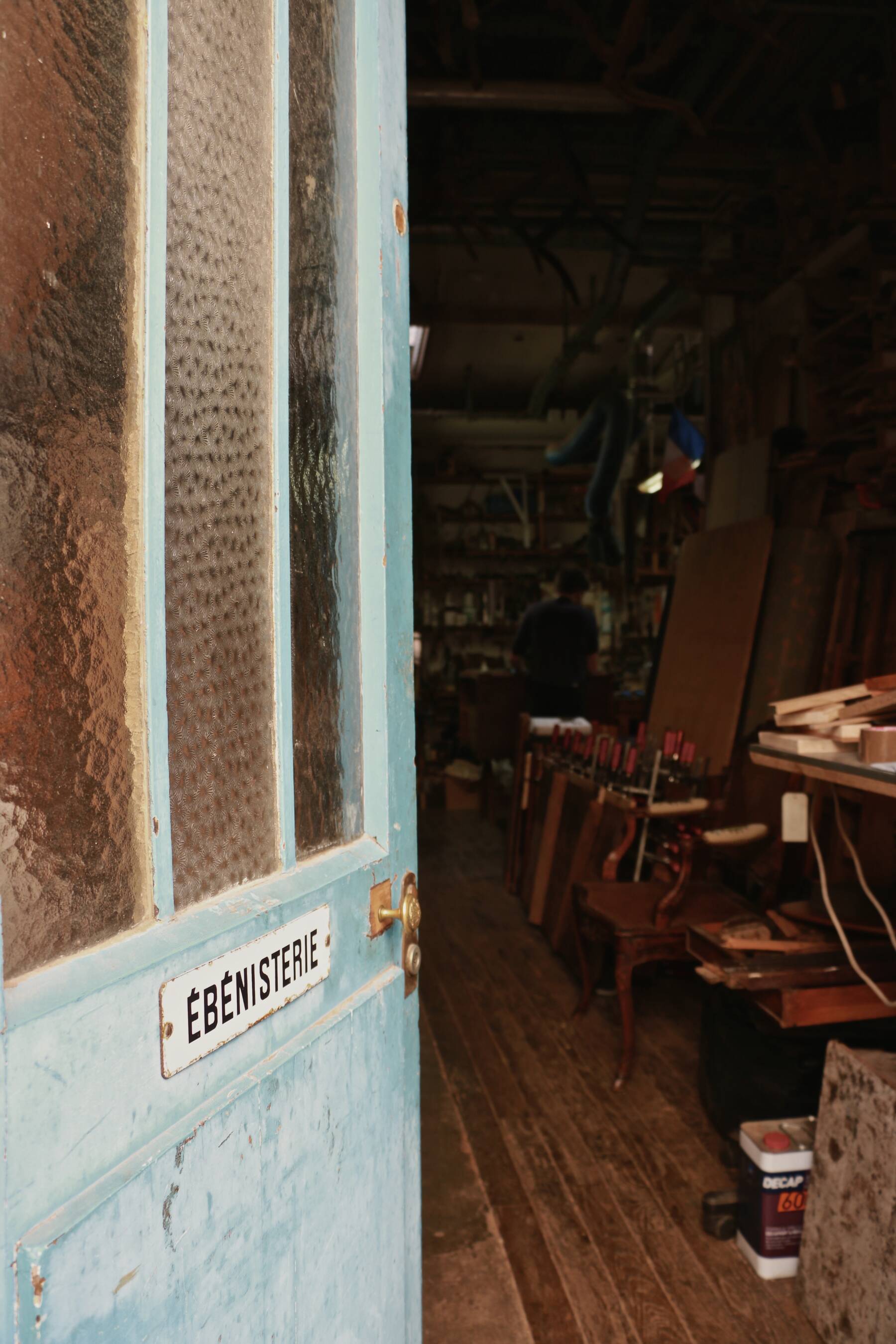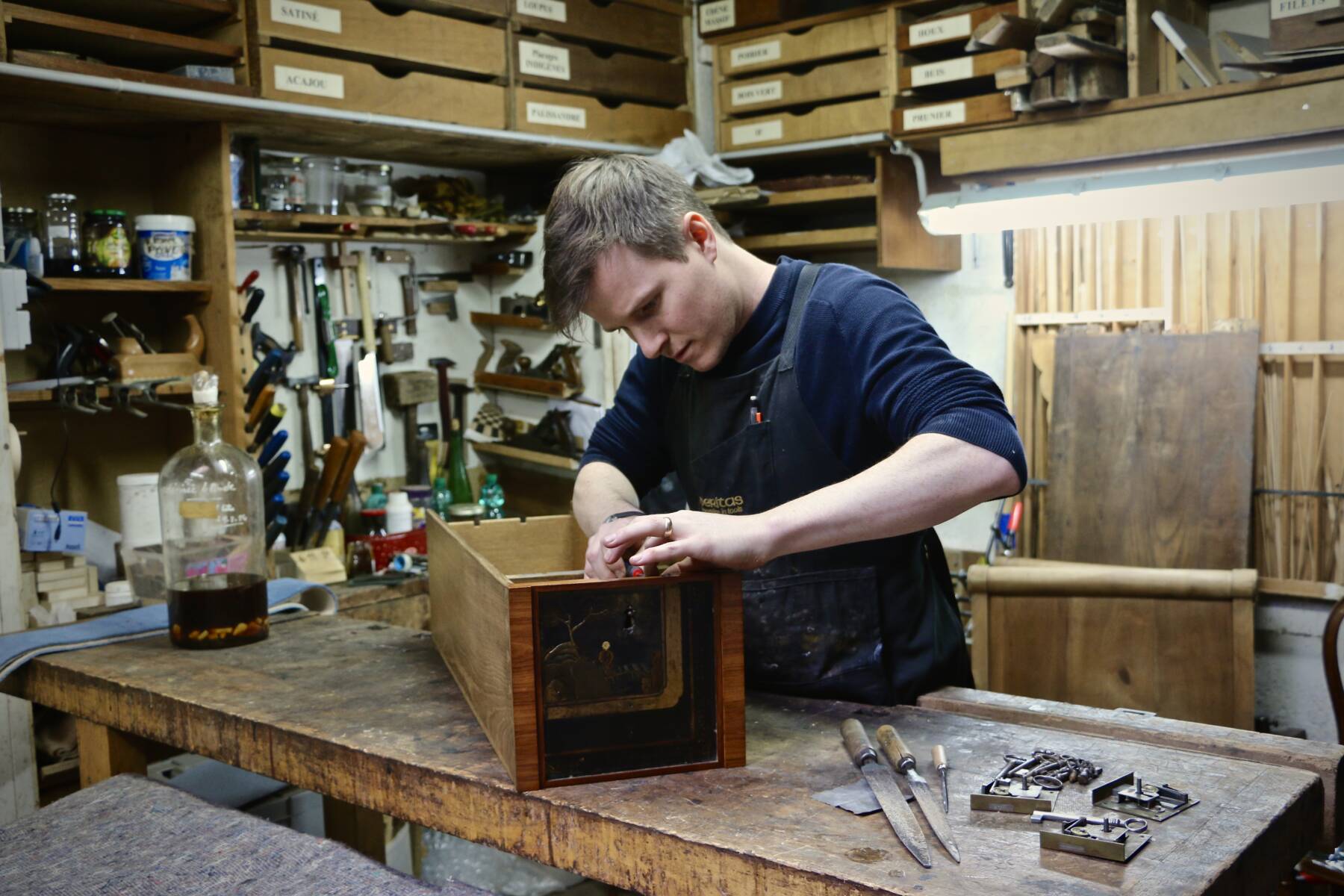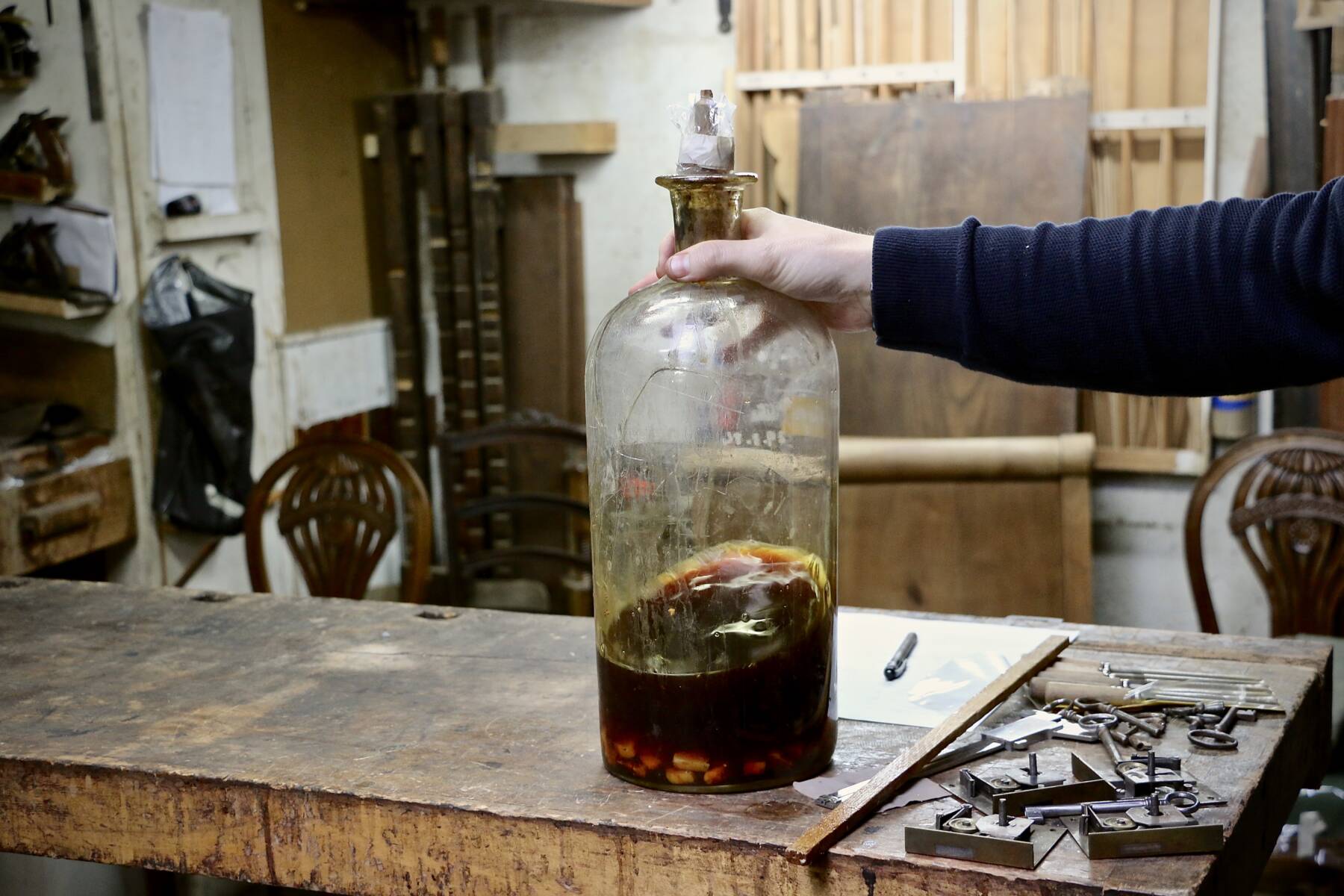Call for applications
Until October 31, 2024
Kim Jordan at Atelier Michel Jamet - 2018
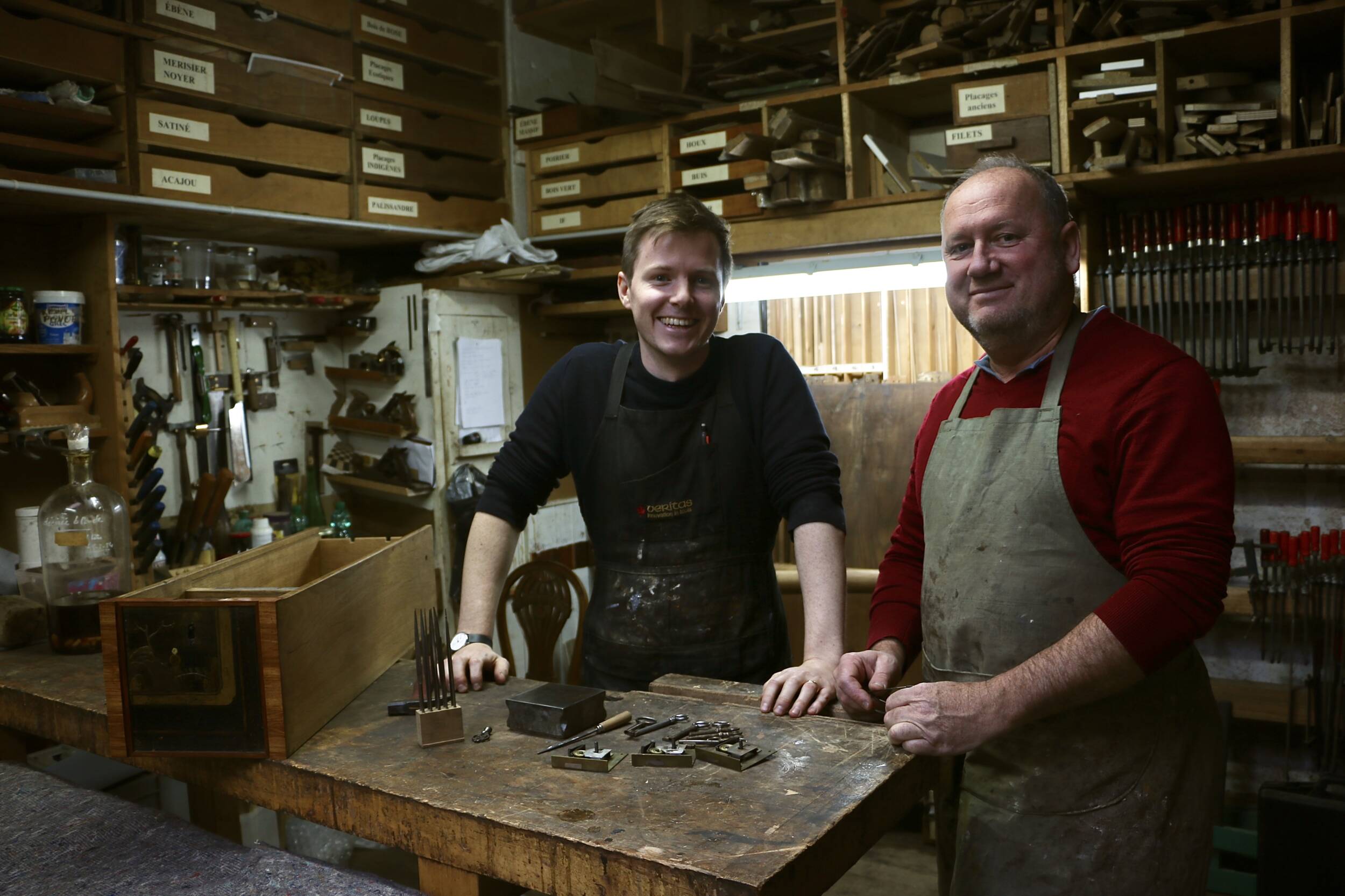
"This prize is a good way to learn what you don't see at school".
Rendezvous at the foot of the Montmartre hill, in a cabinetmaker's workshop specialised in the Conservation-Restoration of furniture, seats and objets d'art, the Atelier Michel Jamet.
Alain Guéroult, manager - master of art and Kim Jordan, winner of the Savoir-faire en transmission prize since January 2018, open the doors of the workshop.
Alain introduces us to his team of cabinetmakers-restorers who are committed to the preservation of national and private cultural property with a constant concern for its perpetuation.
The workshop is characterised by its intergenerational aspect. Alain's years of experience are combined with the contemporary views of his close collaborators.
With Alain
Introduce us to the workshop...
"I have been working for 28 years in the Michel Jamet workshop, which I took over 10 years ago.
The workshop aims to be versatile. It is first and foremost specialised in the conservation-restoration of furniture, seats and art objects. We take care of public and private cultural goods. We are authorised by the Direction des Musées de France to work with national museums and ministries. We also offer custom-made furniture."
How does one become a master of art?
"I have been a master of art since December 2017. To do this, you have to apply with a strong portfolio and have a student, to whom you commit to training for 3 years. »
What does Kim bring to your life?
" We learn from each other. I learn from my student because he has a chemical background, from Kim because he is good at English... There is constant reflection on techniques and processes, which allows us to open up.
The Know-How Transfer Award is a good compromise because it allows Kim to learn things that are not seen in school and to enrich myself by learning from our exchanges and reflections. »
Interview with Kim
Tell us about your background...
"At the beginning, I was doing advertising in London. I was already making some small pieces, as an amateur, in my living room. When I returned to Paris, I did a one-year CAP in cabinet making at the Ecole Boulle.
The reason I wanted to do this reconversion is to work with my hands, I was tired of being in front of a computer. I did an internship here at the Michel Jamet workshop. When I left the school I applied for the Savoir-faire en transmission prize. »
What did this experience bring you?
" The objective was to become professional by working on the restoration of exceptional furniture. I learned hundreds of techniques, whether it was gluing, varnishing or finishing. The appreciation of furniture (essence, assemblies, techniques...) before starting the restoration is also a big part of my learning.
The work should be preserved as it was made, and its history. Reversible glues must be used, such as the one used in the 18th century (based on bone and sinew of beef or fish). Knowing how to work with wood by hand, without machines, is essential for the sustainability of the activity.
The experience also enabled me to better understand the notion of time in relation to the customer, to know how to manage orders, from quotation to delivery. »
What were your assignments during the year?
" I recently renovated a 15th century Syrian chest from scratch. It was an original piece, in ebony and ivory. I also worked on a 17th century ebony cabinet that is now in a castle.
I was able to create a few pieces, a box for the birth of my daughter, a solid walnut stool that I carved, tool handles in different woods. It gives me both materials and memories of the experience. »
What are your future projects?
"I'm looking around to see if there's a possibility of taking a workshop, that's always been the goal since I did the conversion. »


